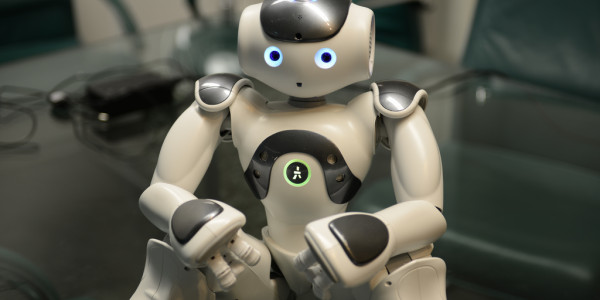Ever since robots were first introduced to science fiction, there’s been the thought that robots could potentially pose a threat to humanity. Typically this threat comes in the form of enslavement or eradication of the entire human race. But as you know, the robots that you see in science fiction are quite different from the robots that actually exist in today’s factories. It’s kind of hard to imagine an army of industrial robotic arms taking over the world.
However there are many people who are concerned that robots may pose a different threat to humans, one that doesn’t hinge on fiction and may already be happening. The threat in question is that robots will take jobs away from human workers.
Baristas, movie ticket vendors, waitresses, and factory workers have all found that their positions are being filled by robotic workers.
So are jobs in danger?
Over the years, automation has replaced the need for a lot of human workers. You can’t ignore the benefits of automation. Industrial automation provides speed, precision, efficiency, consistency, and affordability that human workers can’t rival. But it’s not necessarily a bad thing that robots have taken some of these jobs.
Another advantage robots have over human workers is that they can work in dangerous environments where it’s normally too unsafe to put humans. Industrial machinery can handle extreme temperatures, and it’s not susceptible to radiation, fire, toxic gases, smoke, or other hazards that humans are susceptible to.
Robots make work safer and easier for humans. Up until recently, the jobs that robots have been replacing are the ones that are tedious, physically demanding, or dangerous. However, as technology continues to advance, many fear that not only will a majority of manual labor jobs disappear, but also a growing number of white collar jobs as well.
The thought is that robotics and automation will eliminate the need for human workers, leaving a huge amount of the workforce unemployed.
Throughout history, technology has replaced human workers in a number of jobs. According to David Hummels, an economics professor at Purdue, nearly two-thirds of the U.S. population worked in agriculture in the 1800s. Today, farmers make up less than 2% of the workforce.
Does that mean that the rest of the two-thirds of the population are sitting around being unemployed? No. Technology simply displaced jobs rather than eliminated jobs.
Technology creates new jobs, and new opportunities. People shouldn’t be scared that robots will take up all the jobs, and humans will be left with nothing to do. History suggests that’s not going to happen.
